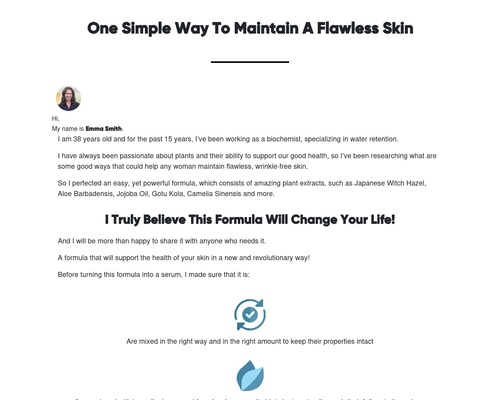
[ad_1]
Dr. Freeman suggests applying your moisturizer after showering while your skin is still damp—ideally within three minutes of hopping out—to help stop all that hydration from escaping. “Partially dry off and apply a liberal amount all over the whole body, every day, preferably twice a day,” she advises.
2. Prescription-strength creams
Sometimes OTC moisturizer won’t cut it, says Dr. Freeman. That’s when a prescription-strength corticosteroid cream—which helps to suppress the inflammatory cells that cause your skin to bug out—might help in the short term. Just be sure to use these exactly how your doctor prescribes them, and to raise a flag if symptoms seem to get worse.
Sometimes, though, a steroid cream might not do the trick, or your eczema pops up in a particularly sensitive spot, like your groin, eyelids, or face. Steroid creams can also cause skin thinning when used excessively, so your doc should go over that possible risk with you if your eczema hits an already-vulnerable area. If you have these concerns, your doctor might recommend a different class of anti-inflammatory ointments or creams that aren’t as potent and therefore can be used longer-term, Divya Shokeen, MD, a Los Angeles–based dermatologist, tells SELF. Here are the three most common:
- Topical calcineurin inhibitors (TCIs): They help to prevent your immune system from switching on in the presence of a trigger.
- Topical PDE4 inhibitors: These also suppress an overactive immune system.2
- JAK inhibitors: This treatment stops your body from sending out inflammation signals.
These options can be more expensive than steroid creams, explains Dr. Freeman,3 “but they’re well tolerated.”
3. Oral medications
If you’re itching all over or if creams just aren’t cutting it, an oral medication might be the way to go, says Dr. Shokeen. Typically you have two types to choose from: oral steroids (which can calm your immune system and tame inflammation to give immediate relief during flare-ups) and nonsteroidal immunosuppressant oral medications (which keep the immune system from continuously flipping out over the long haul, explains Dr. Galapati).
Unless it’s totally unavoidable, many doctors generally try to avoid prescribing oral steroids because of their (sometimes) uncomfortable side effects if they’re used long-term. Still, steroids might be a fast-acting solution to consider if you’re in the throes of a hellish flare-up. But you’ll probably still need to see a doctor regularly for lab work when you’re on them, just to make sure you’re responding well to the medication.4
Nonsteroidal immunosuppressant oral medications aren’t always free of side effects, though. Some people who take them report having upset stomachs, headaches, and fatigue, among others. (Basically, it’s super crucial to take these, like any other prescription treatment for eczema, under the close supervision of a derm.)
4. Phototherapy
According to Dr. Shokeen, phototherapy (a.k.a. ultraviolet (UV) light therapy) is an ideal treatment when your skin can’t really handle—or isn’t responding to—topical creams or oral medications.5 During a treatment session, you—or the specific body parts affected by eczema—are exposed to filtered wavelengths of UV light for a few minutes, which can help calm down immune system cells that are causing inflammation. Though you typically need steady treatment for a month or two before seeing results, it can be really positive, she says. “The most common risk is sunburn or reddening of the skin,” Dr. Freeman explains. (It’s important to note that phototherapy is done in a dermatologist’s office and never a tanning bed!)
5. Biologics
Biologics—injectable medications that calm the immune system and reduce inflammation—are considered a last-ditch treatment for eczema when other remedies haven’t worked, according to all the dermatologists SELF spoke with. But if you’re really suffering, they can sometimes be a game-changer for your skin: “Biologics have been a life-changing treatment for patients with stubborn eczema that’s chronic and relapsing,”6 explains Dr. Freeman. “They keep the immune system from overreacting, which lowers inflammation and decreases the symptoms of eczema.”
[ad_2]






